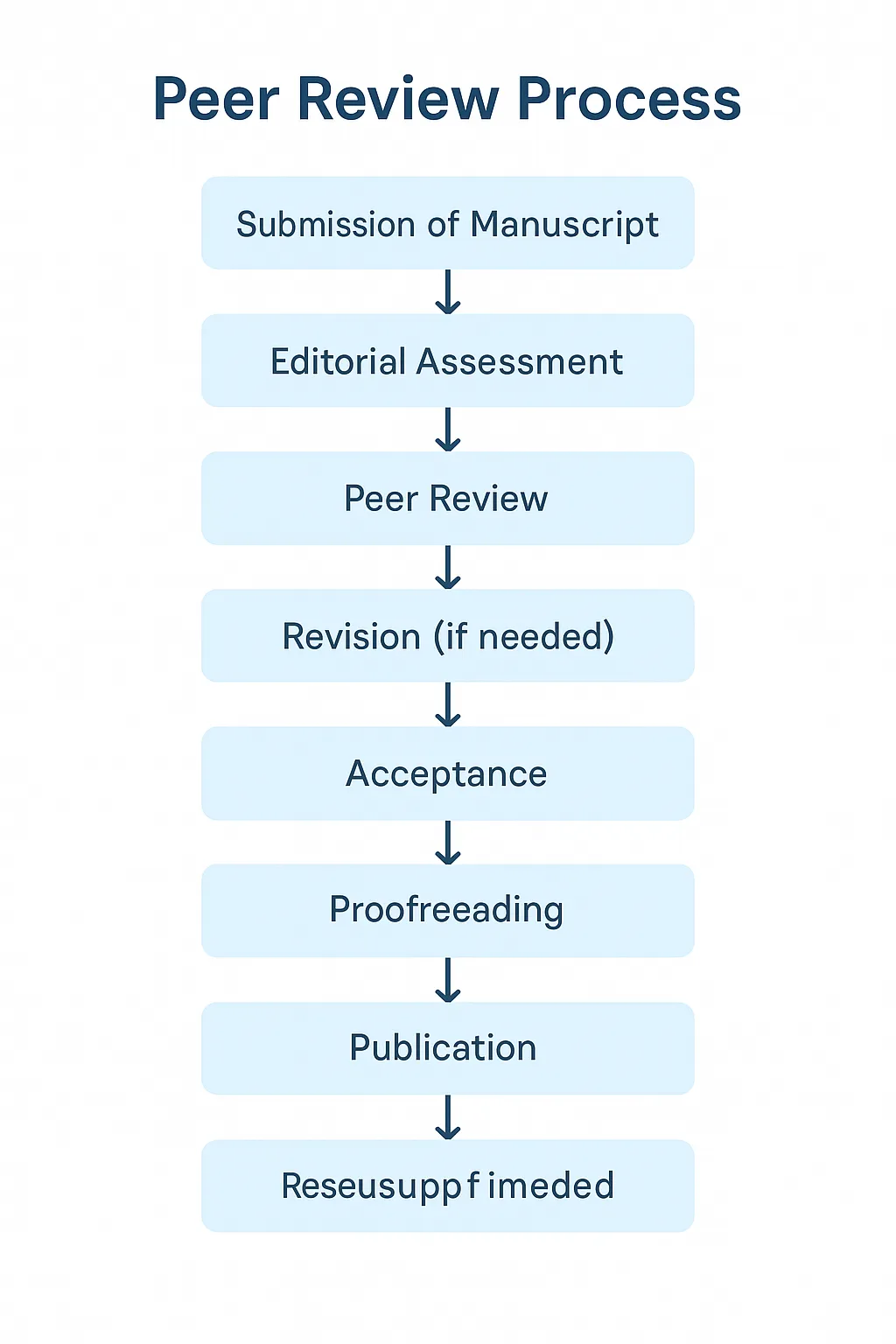Overview
Peer review is the cornerstone of credibility and academic excellence at the Journal of Interdisciplinary Social, Digital, Creative & Engineering Studies (JISDCES). All submitted manuscripts undergo a rigorous double-blind peer review process, where both author and reviewer identities are kept confidential to ensure unbiased, fair, and constructive evaluations.
This process is designed not only to uphold the integrity and originality of published research but also to ensure that each article aligns with the journal’s interdisciplinary mission—bridging diverse domains such as social sciences, digital technology, design, innovation, and applied engineering.
Why Peer Review Matters
- Quality Assurance
Each manuscript is critically assessed for clarity, methodology, relevance, innovation, and ethical compliance before acceptance.
- Scholarly Rigor
Reviewers provide detailed feedback to refine the research, identify gaps, suggest improvements, and validate the findings.
- Plagiarism Protection
The peer review process includes plagiarism screening and verification to ensure all content is original and properly cited.
- Elevated Impact
By improving clarity, structure, and argumentation, peer review enhances the article’s potential for academic recognition and citation.
- Fair and Transparent Evaluation
Editorial decisions are based on independent expert reviews, ensuring an impartial publication pathway.
Peer Review Process Visualization

A visual representation of the JISDCES peer review workflow, outlining key steps from submission to publication.
Benefits for Authors
- Expert Guidance: Authors receive comprehensive insights from field specialists, aiding in manuscript improvement.
- Increased Credibility: A peer-reviewed article is widely regarded as a mark of scholarly merit.
- No Review Charges: At JISDCES, peer review is conducted at no additional cost to authors.
- Global Standards: Our reviewers follow international best practices to ensure fairness, confidentiality, and professionalism throughout the process.
Commitment to Timeliness
We understand the value of time in research. The average turnaround for first decisions is typically 7–14 days, ensuring swift communication and publication without compromising on quality.